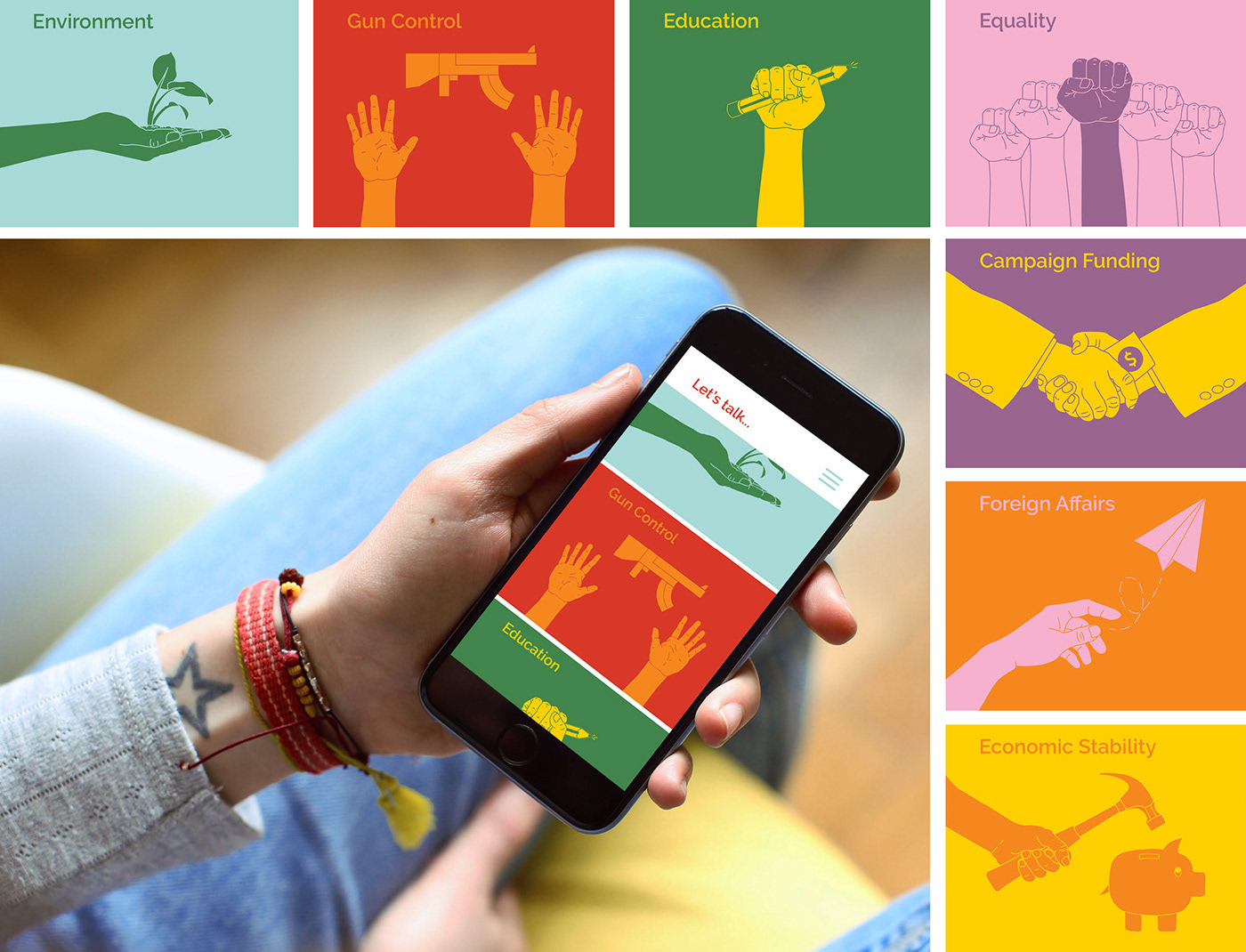Let's Get Handsy - A game of debate for the politically curious college student
by Bailey Jacobs
The Problem
It seems that the majority of college students are unhappy with our government and know how to talk about it but aren't sure what they can do about it. Many students run into the issue of trying to learn more but not having the resources to do so. Staying updated on local and national elections and debates is challenging due to busy schedules and having to sift through so much information. This stops most college students from being able to get involved and make their voices heard.
Research Question
In what ways can politically curious Miami University college students go beyond talking about issues and take action by communicating with their US Senator/Representative?
Success Statement
Being given the resources to stay updated on current political topics, Miami students and their friends will engage with one another to make their voices known to their representatives in government.
Target Audience
College students at Miami University that are interested in politics and government but don’t know how they can get involved or make a difference.

Research
This past January, an NBC/Wall Street Journal poll found:
58% of Americans agreed with the statement, “Government should do more to solve problems and help meet the needs of the people.” That 58 percent wanting the government to “do more” is at an all-time high on a question that has been asked in the poll on-and-off for more than 20 years.
Another poll found:
8 in 10 Americans say they are dissatisfied or angry with the way the federal government is working. After talking with friends and classmates, I found that many college students feel the same as these 8 in 10 Americans.
I conducted a survey asking students:
Can you name the US Representative/Senator for your state off the top of your head? (If yes, write your state and their name).
Have you ever tried to contact someone in government (either local or national) about an issue? (If yes, explain. If no, why not?)
How often do you vote?
What do you use, if anything, to stay updated on what’s going on in the world/US?
How interested are you in playing a role in what laws are being made in our country?
About 50 people responded, with the majority being upperclassman having some level of interest in politics. I was surprised to find that about half of the people that took the survey could name their representative off the top of their head. Most could only name one of their reps though. Answers varied for why or why not people chose to contact someone in government ranging from “voicing their concerns” to “not knowing how” to contact their rep.
For my interviews, I got to sit down with an international studies major and a student who works for Senator Brown’s office. She gave me insight into calling your representatives. "The more people the better when it comes to calling. They are more likely to pay attention if multiple people are calling about the same thing." After talking with them, I also found that It’s hard to keep up on elections and debates when "you have to sift through so much information" and when busy schedules get in the way.
Design Process
I began my design process by pulling the seven most relevant political topics to college students that I found from my survey and interviews: Environment, Gun Control, Education, Equality, Campaign Funding/Corruption, Foreign Affairs, and Economic Stability. When looking for inspiration, I found websites like rockthevote.org and countable.us. Both of these websites do a great job of giving people information for how they can sign up to vote and who their representatives are but you still have to sift through a lot of information to know what you would even want to vote for. I wanted to create something fun and engaging that would allow students to stay updated on current political topics without having to do so much digging and research.

Design Solution
“Let’s Get Handsy”, a game of debate for the politically curious college student. I chose to create a game because it allows students to get involved by starting conversations with their friends. I chose to use hands in all of my icons and designs to represent hands on learning, engagement and togetherness. Throughout the game, players will be asked to physically interact with their hands through rock, paper, scissors, fist bumps, and high fives. The number one rule of the game is that it must be played with another human in person.
When starting the game, you can either create an account or sign in as a guest. The benefit of creating an account is that it will save your information such as your zip code allowing the app to tell you who your state reps are. This also allows the app to provide you with information for upcoming elections, where you can go to vote, and what your representatives are up to. The game can also cater specific topics to prepare you for upcoming elections. The questions and debates are constantly changing to stay current and relevant.The players go back and forth adding their own wit and character as they are learning each side of the argument. I got to test this game with my roommates who really enjoyed getting to “destroy” each other in debate.
“Let’s Get Handsy” allows the over-scheduled college student to stay in the know and make their voice heard. Connecting people and spurring conversations because things are better when done together.









